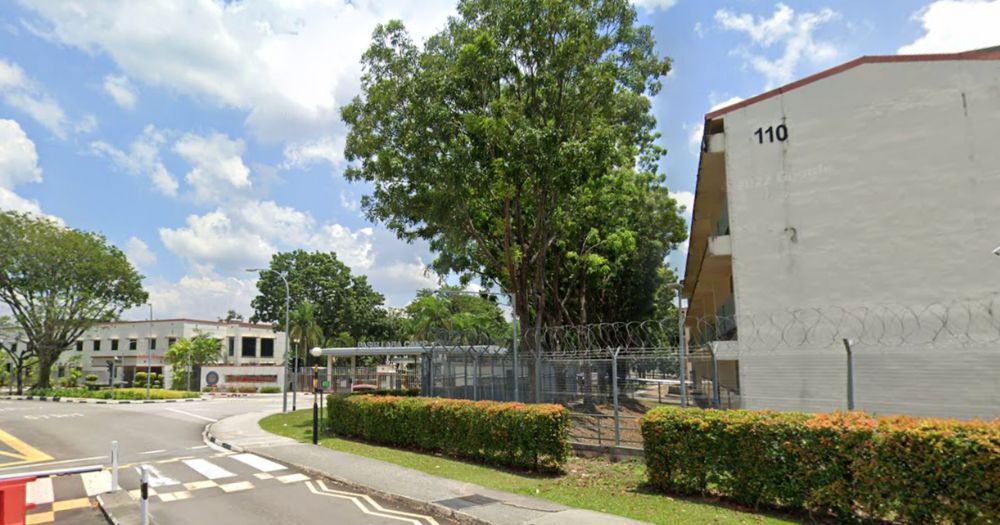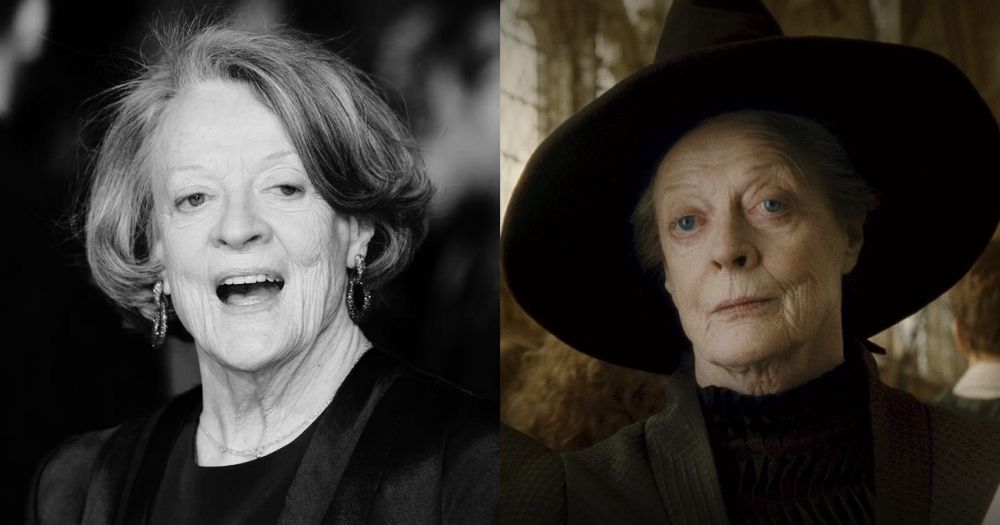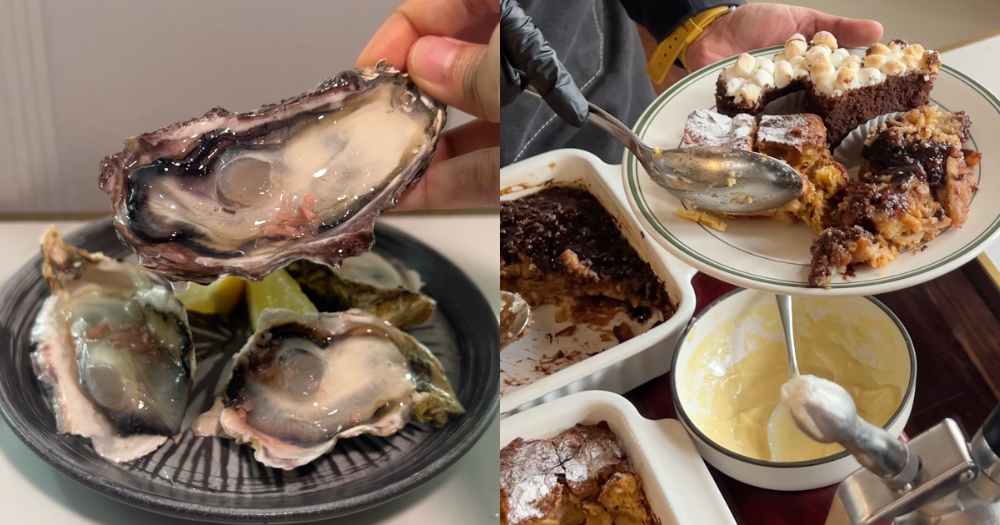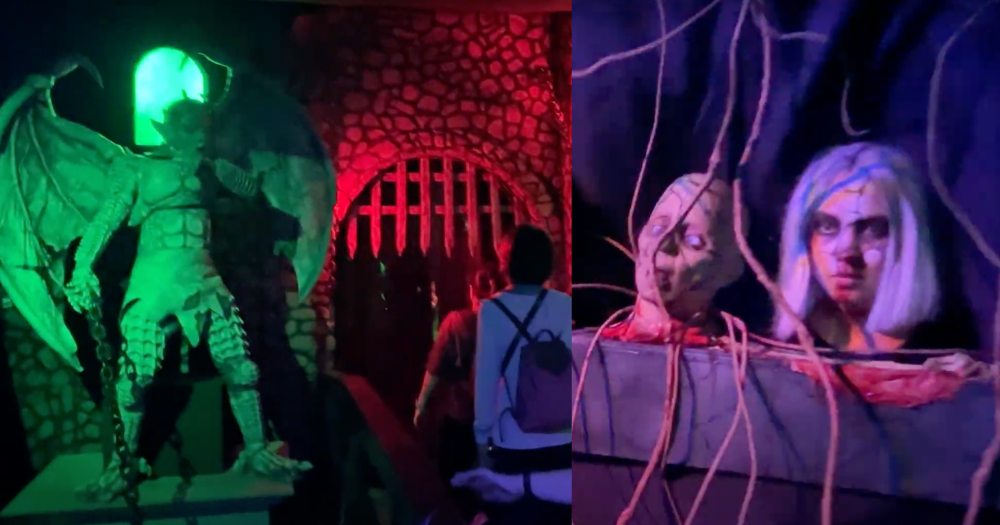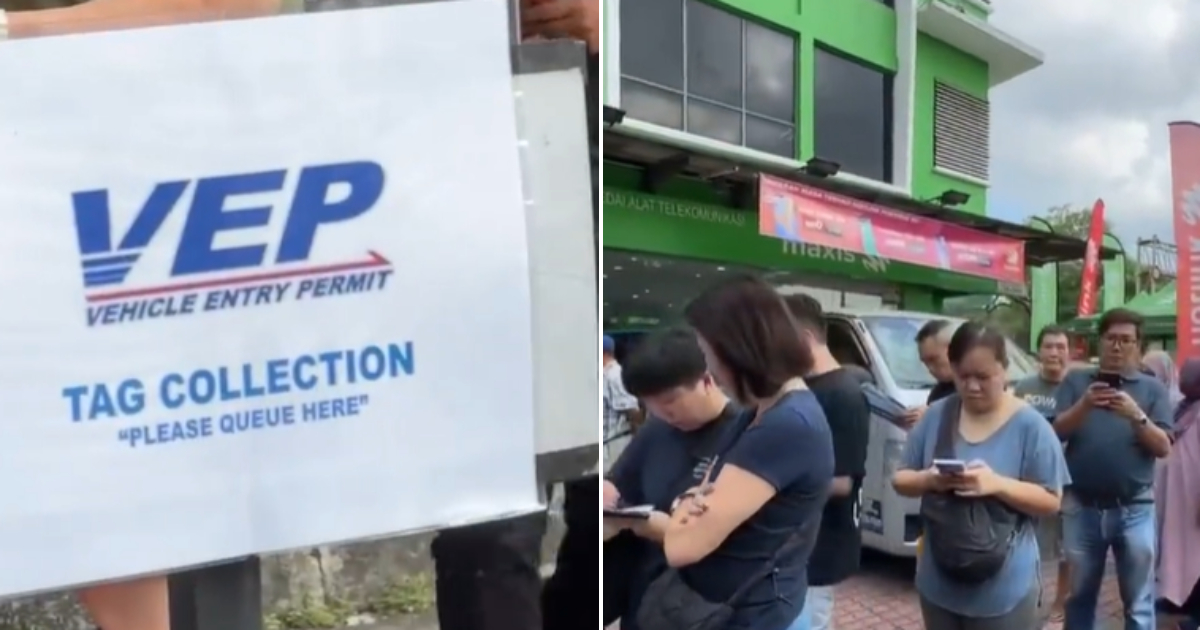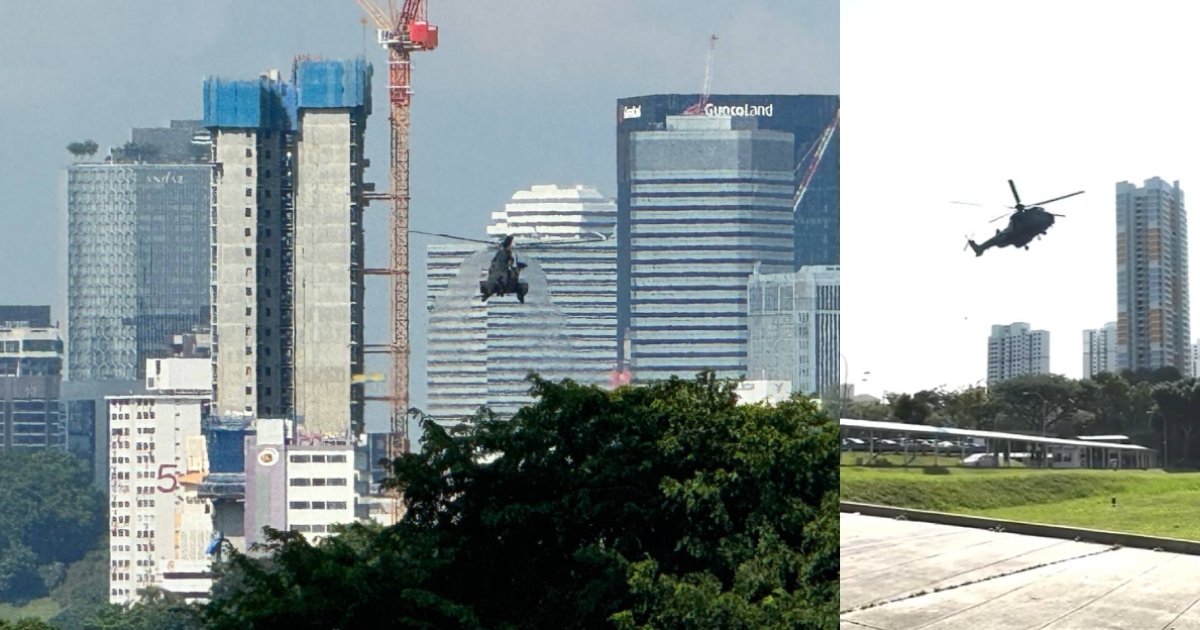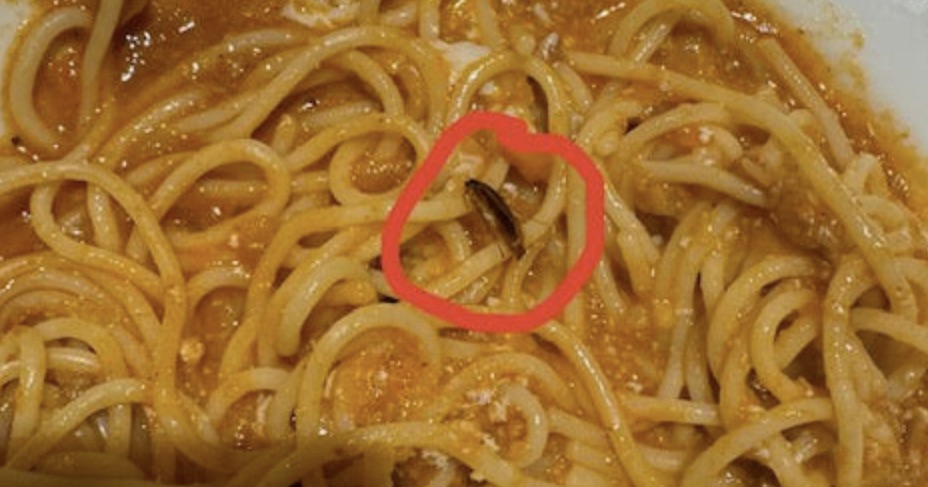Man seen letting pigeons into his Ang Mo Kio HDB flat via kitchen window to feed them daily
Feeding pigeons is illegal under the Wildlife Act, and offenders can be fined up to S$10,000.
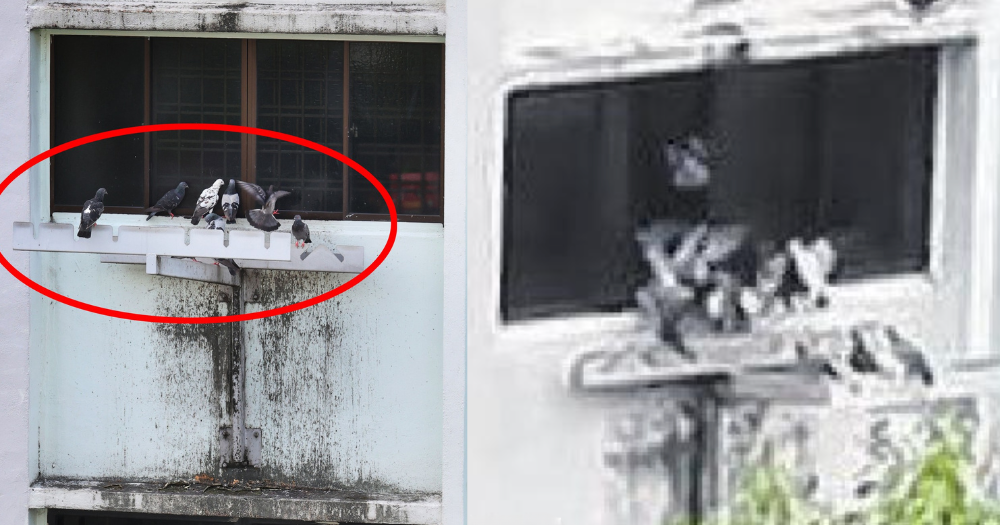
A man who lives at Block 559 Ang Mo Kio Avenue 10 was accused of contributing to bird infestation in the area by opening his flat window, "inviting" pigeons into his apartment, and feeding them every morning.
When a Shin Min Daily News reporter visited the man's unit, she saw stains, believed to be bird droppings, on the wall outside his window.
However, the man did not answer the door when the reporter knocked on it numerous times.
Man's deeds caught on camera
Another resident in the estate caught the man's actions on camera and shared the footage with Shin Min.
In the video, around 20 pigeons could be seen gathering outside the window of the man's unit.
The doors and windows of the unit were shut, reported Shin Min.
When a woman, who lives above the man's unit, noticed the pigeons, she leaned out of her window and tried to shoo them away by waving a cleaning cloth.
While she was doing so, the window of the man's unit suddenly opened, and the pigeons entered the unit.
The window was closed immediately afterwards.
 Screenshot via Shin Min Daily News
Screenshot via Shin Min Daily News
Pigeons visit HDB block every day
Shin Min reported that it understands that the man lives alone in the HDB flat, and he seldom interacted with his neighbours.
While residents of the HDB block were surprised by him inviting the pigeons into his flat, they are concerned that such actions would exacerbate the bird infestation problem that has been plaguing them for "quite some time".
A neighbour of the man told the Chinese daily it appeared that the pigeons "have gotten used to" entering his flat for food.
The pigeons' frequent presence was also observed by another resident who lives above the man's unit, who added that the birds would hover outside her window every day at around 8am and in the evenings.
She was surprised to find out that one possible reason could be her neighbour's persistence in feeding the birds.
The resident lamented that because of bird infestation, she now has to shoo away the pigeons first before she can hang her laundry so that the bird droppings will not land on her clothes.
This sentiment was echoed by the resident who took the video: "By feeding the birds, he not only pollutes the environment but also causes the vehicles down the block to be stained by bird droppings every day."
NParks aware of pigeon-feeding at HDB block
In response to Mothership's queries, the National Parks Board (NParks) group director for wildlife management How Choon Beng confirmed that NParks is aware of feedback on the feeding of pigeons at the HDB block and "is conducting surveillance in the area".
"We have also been working with Ang Mo Kio Town Council to manage pest bird populations and advise residents against the feeding of birds, while sharing about the implications of these actions on public hygiene and health," said How.
He added that NParks will continue to monitor the situation, and enforcement action will be taken against bird feeders.
Rock pigeons are an invasive species
In the statement, How also highlighted that rock pigeons are a non-native species in Singapore, and their flocking and roosting behaviours can result in soiling and hygiene issues.
"To safeguard public health and minimise dis-amenities, town councils and agencies take a science- and community-based approach in managing the pigeon population, comprising measures such as food source reduction, habitat modification, and population control," the statement read.
NParks also conducts studies to understand the ecology of the birds, such as their roosting patterns and movements, said How.
Public can help reduce population growth of pigeons
How urged members of the public not to feed the pigeons and ensure that food scraps are properly disposed of to help reduce the population growth of pigeons.
Under the Wildlife Act, offenders can be fined up to S$5,000 for their first offence of feeding any wild animal, including pigeons, and up to S$10,000 for subsequent offences.
"NParks monitors feedback on illegal bird feeding and undertakes active enforcement, which includes physical surveillance and the deployment of CCTV cameras at identified feeding hotspots," added How.
Pilot aiming at managing pigeon population ongoing at Ang Mo Kio
Ang Mo Kio was one of the three contiguous town council areas that was flagged as a hotspot for large pigeon clusters, said Senior Minister of State in the Ministry of National Development Tan Kiat How in a Jun. 25 Facebook post.
The government would thus pilot a pigeon management action plan and step up "targeted measures" in the area, such as controlling the pigeon population and reducing their food source.
According to Tan, restricting pigeons' access to food, especially from human sources, is important because it is "a huge contributing factor" to their population growth.
He added that the government will assess the result of the pilot in early 2025 and consider extending it to more town councils should it be found to be effective.
Top images via Shin Min Daily News

MORE STORIES







